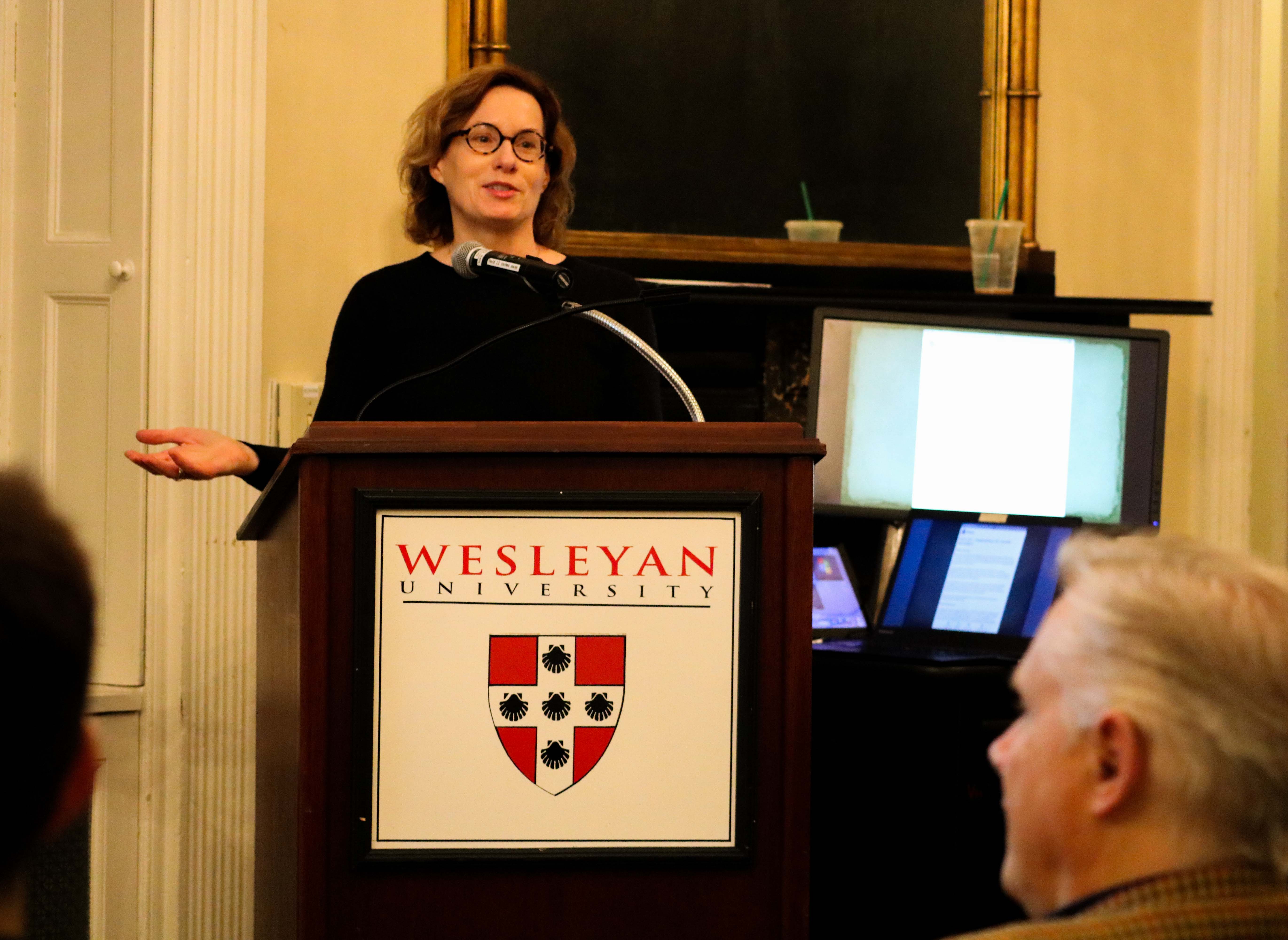
Thao Phan, Assistant Photo Editor
Last Tuesday, the History Department hosted Professor Joyce Chaplin of Harvard University as its Meigs Lecturer for the 2017-2018 academic year. Chaplin’s lecture was titled “The Franklin Stove: Heat and Life in the Early Ice Age.”
“Her work cuts across several domains including environmental history, history of science, intellectual history, early American history,” Professor and History Department Chair Demetrius Eudall said. “[She] has made distinctive contributions to each of these fields…. She is without a doubt one of the most renowned professors of early American history as well as the field of science and the environment.”
Chaplin’s lecture focused on Benjamin Franklin’s ideas on climate change and Franklin’s response to the invention of the Franklin stove. She began by dispelling the notion of Benjamin Franklin’s scientific work as limited to electricity.
“His first scientific efforts were not focused on electricity but on heat,” Chaplin said. “Those efforts led to his investigation of physical atmospheres, weather systems, ocean currents, climate, and indeed the possibility of climate change.”
Franklin stood out in his time due to his ability to conceptualize the idea of climate as distinct from weather, with climate as long-term, atmospheric trends.
“He interpreted climate within history and in terms of immutability, as opposed to a routinely seasonal response to weather,” Chaplin said.
Franklin was a trailblazer in this respect, yet he never understood the difference between the climate of New England and that of Europe. Early British colonists thought distance from the equator determined climate and formed bands of temperature, so they were puzzled when they traveled West and South across the Atlantic and found a much colder climate.
“Compounding the problem was the period of cooling called the little ice age, a very awkward chronological designation, with no fixed starting point or ending point but extending roughly from the late 1300s into the late 1800s,” Chaplin said.
While it is extremely difficult to understand climate history during early America due to a lack of precise tools, Chaplin found creative ways of determining the severity of the climate. By searching through the Early American Newspaper Database, she found roughly 64,000 results for “winter” and roughly 35,000 for “summer.”
“So the average early American newspaper reader was almost twice as gripped by news relating to cold weather rather than its seasonal opposite,” Chaplin said.
In addition to his understanding of climate, Franklin also saw the human ability to influence climate through deforestation. Chaplin explained that these ideas combined to form an awareness of resource conservation in Franklin that was both rare for the 1740s and underappreciated today. This is what led to Franklin’s scientific exploration of the stove, a device that would warm homes more efficiently than the standard fireplace.
“Indeed the stove was Franklin’s attempt to solve two chronologically related problems: A pattern of historically atypical weather—cold weather—and the prominent threat of future deforestation, as the British colonialist population grew in size and demanded ever more firewood, possibly altering the climate as they did so,” Chaplin said.
Chaplin added that Franklin’s scientific legacy doesn’t stand untarnished. Despite his research of Native Americans, concluding that the United States was historically cold, he believed that they would eventually be completely replaced by European settlers.
“Even if every other prejudice existed in your mind, for a man of science to grant knowledge of a physical place that matters to him too, but to have this attitude that they are disposable is quite amazing,” Chaplin said. “If Franklin thinks these people know this place so well, why would you think they would go extinct?”
Mason Mandell can be reached at mjmandell@wesleyan.edu and on Twitter @MasonMandell.
Comments are closed